Vietnam and the plastic pollution challenge
(VNF) - Earth Day 2018, themed "End Plastic Pollution" reminds us of the challenge facing our globe today.
Plastic waste, the threats to all living creatures
Earth Day is celebrated annually on April 22. Various events are held around the world to show support for environment protection.
Earth Day 2018, themed "End Plastic Pollution", aims to raise awareness on the harmful impacts of plastic waste and call for action to deal with this issue.
"From poisoning and injuring marine life to the ubiquitous presence of plastics in our food to disrupting human hormones and causing major life-threatening diseases and early puberty, the exponential growth of plastics is threatening our planet’s survival," said Kathleen Roger, President of the Earth Day Network.
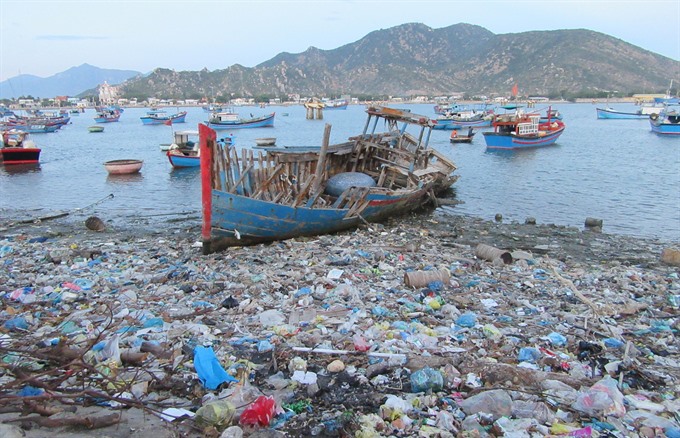
|
Garbage along Dam Nai beach in Ninh Hai District, central province of Ninh Thuan (source: VNA)
Plastic waste, which also occurs in canals and sewers, causes foul odours and emits methane gas. It can also act as a disease vector.
Reports have documented that more than 180 animal species have eaten or absorbed plastic in their bodies, mostly birds, fish, turtles and marine animals, according to Nguyen Thi Hoai Linh, the country manager for Environmental Development Action in the Third World (ENDA) Vietnam.
She also cited a World Bank study on waste classification in 109 countries, that Vietnam is the 17th-biggest plastic waste producer.
On average, one Vietnamese produces around 1.2kg of waste per day, and "16 percent of them is plastic," Quach Thi Xuan, director of Da Nang Centre for Consultancy on Sustainable Development, said at the seminar on plastic pollution held by the Consulate General of the United States in Ho Chi Minh City on April 19.
Supposing that Vietnamese population is 100 million, the amount of waste generated every day will be 100 million, the amount of waste would be 120,000 metric tons, and 19,000 of them is plastic, Xuan told the event.
How to cope with it?
Thanks to prodding from NGOs, some governments in the world, particularly in Asia are taking action to reduce plastic waste.
Indonesia has committed to reduce plastic waste to a certain level, while Sri Lanka has banned the use of single-use plastic items like shopping bags.
At the workshop, Dr David Saiia, CEO of the US-based Reuse Everything Institution Inc. (REII), described the use of ultra-high technology used in a REII-developed machine that solidifies standard 500ml plastic bottles into composite plastic building bricks.
He said that the technology would give reuse entrepreneurs another product to sell and help them become more efficient in what they collect.
In an effort to stop plastic waste in the ocean, Vietnam has opened plastic waste recycling workshops at which plastic waste, especially plastic bags, are converted into building materials or composite materials.
The Building Materials Institute has developed a process of recycling nylon waste to make plastic planks which can replace plywood, used in some specific construction fields.
This type of plywood has been tested by the Institute of Hygiene and Safety and recognized as safe to people and the environment.
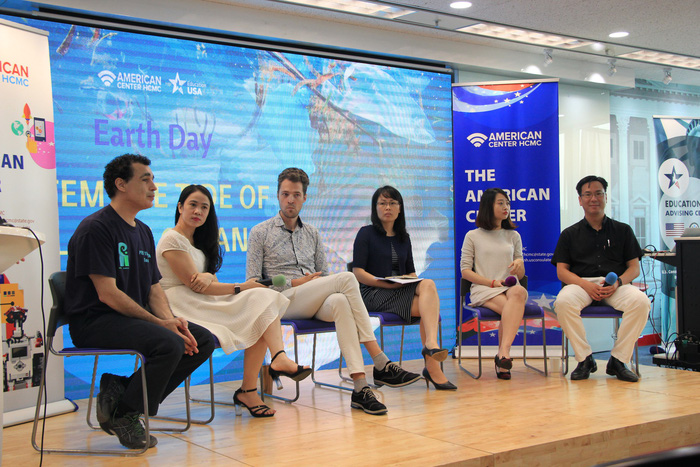
Conference on plastic pollution held by US Consular in HCM.City on April 19 (source: Tuoi Tre)
A simple change in inpidual's habit is also essential to the end of plastic pollution.
“Do you need an extra plastic bag at the supermarket? Or can you bring your own? Do you need a plastic cup and straw at the bubble tea shop? Or can you bring your own mug? Do you reuse plastic bags or throw them away?” said US Consul Mary Tarnowka in a dialogue on plastic waste on April 19.
Michael Burdge, co-founder of Zero Waste Saigon, a social group and network working on solutions to decrease plastic consumption, also offered his “powerful tool” for people at the event.
“When you order your water, say ‘no plastic straw’,” he said, expressing the small action can lead to bigger change.
“Refuse”, as Burdge’s method, is also a step that “extends” 3Rs to 5Rs including Refuse - Reduce - Re-use - Recycle – Rot.
According to Nguyen Thi Hoai Linh, country manager for Environmental Development Action in the Third World (ENDA) Vietnam, the public must be better educated about the need for waste separation at source and the harm of plastic waste.
She urged the government to work with independent waste collectors as well as the private sector on plastic recycling solutions.
“However, waste sorting at source is the biggest challenge because it needs a change of thought and behaviour among the public. Behavior change always needs a long time,” she said.
She also noted challenges in the fight against plastic bags, including the lack of sufficient regulations on plastic waste and policies that call for investment in plastic recycling companies.
According to her, policymakers should revise or issue rules on solid waste collection systems from the national to community level./.
( VNF )
Recommended
 National
National
Four Notable Outcomes of General Secretary To Lam’s Four-nation Tour
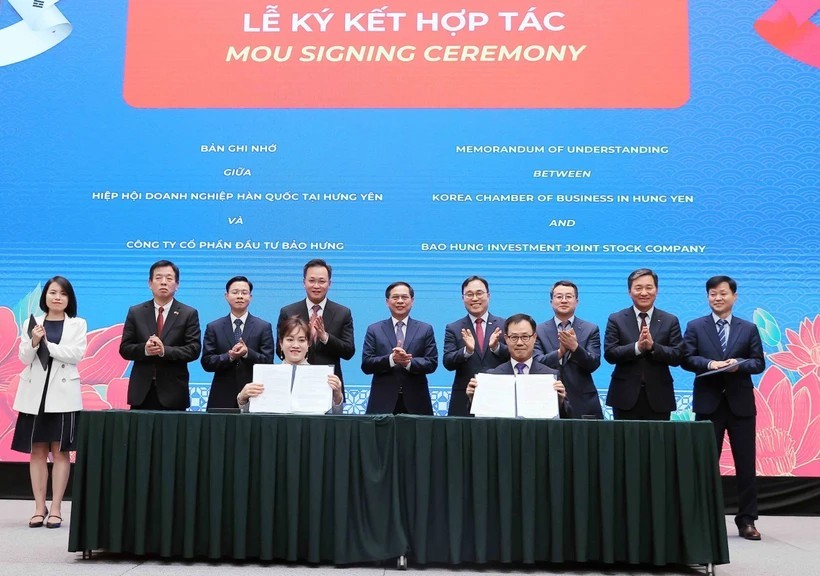 National
National
Vietnam News Today (May 15): Vietnam Looks for Stronger Cooperation with RoK in New Era
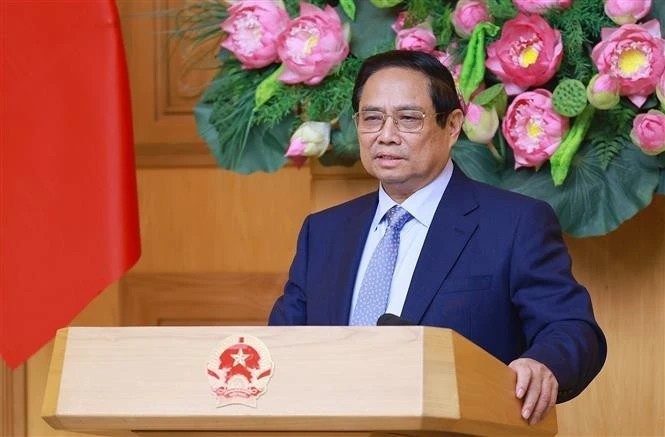 National
National
Vietnam News Today (May 14): US Businesses Affirm Long-Term Commitment to Vietnam
 National
National
Vietnam News Today (May 13): Vietnam Maintains High Human Development Index Despite Global Slowdown
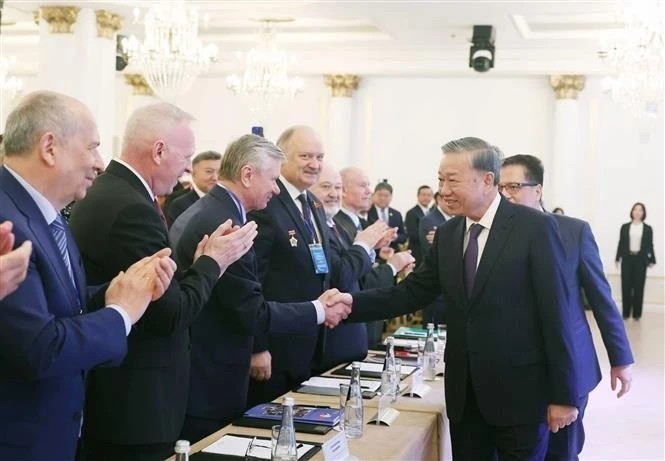 National
National
Vietnam News Today (May 12): Party General Secretary Meets With Russian Experts, Intellectuals
 National
National
Vietnam News Today (May 11): Vietnam, Austria to Boost Cooperation in High-Tech Development, Innovation
 National
National
Vietnam News Today (May 10): Vietnamese Peacekeepers Honored with UN Medal in South Sudan
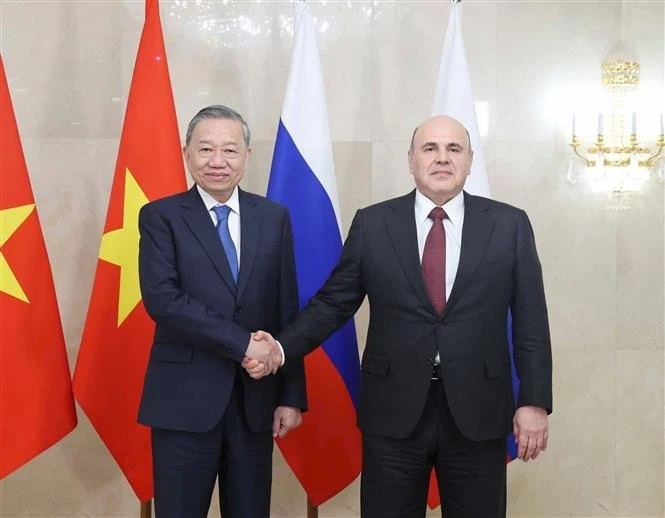 National
National
